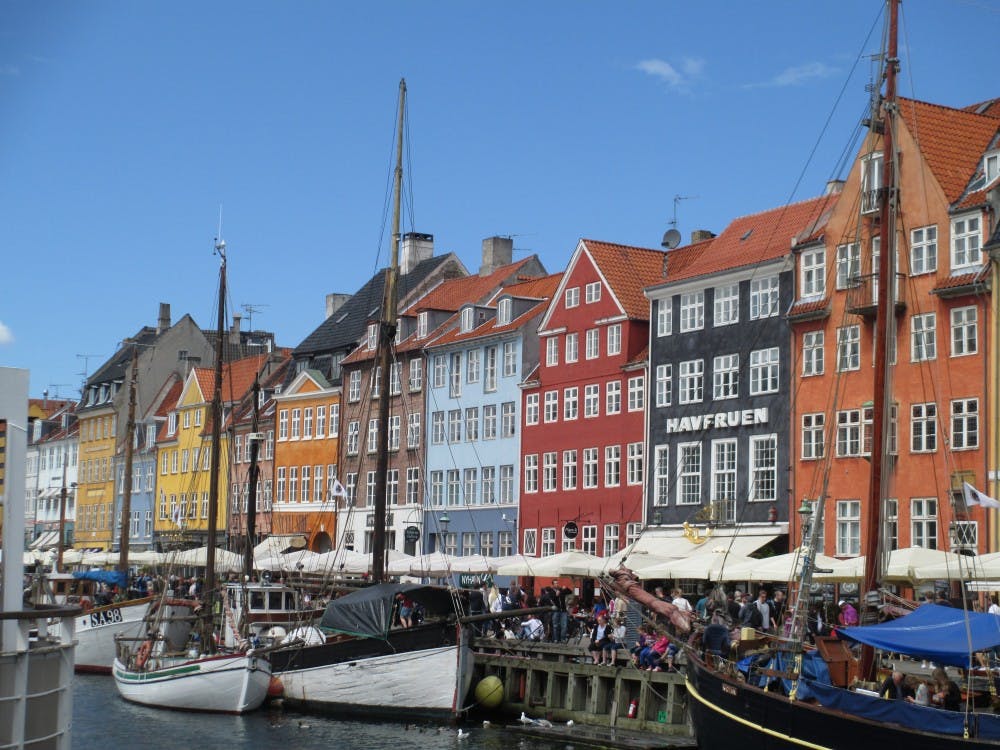Students learn about European healthcare while studying in Denmark
Performing an ultrasound and learning to diagnose were opportunities junior Zak Scherzer would not have done if he had not studied abroad this summer in Copenhagen, Denmark.
Scherzer is one of 353 students taking part in Central Michigan University's Summer Study Abroad Program. In the 2014-15 academic year, 649 students studied abroad with the top five places to study being: Ireland with 98 students, Italy with 85 students, United Kingdom with 75 students, Costa Rica with 35 students and the Dominican Republic with 31 students.
"More students tend to study abroad in the summer; that's generally how it works nationwide," said Dianne Desalvo, Study Abroad director. "We have a lot of faculty led programs that take place in the summer, so they recruit students. Some students are part of cohorts during the academic year. It's easier for them to study abroad in the summer for that reason."
For Scherzer the decision to study abroad wasn't hard to make. The Frankenmuth junior said he doesn't travel much and knew in the field of medicine, international experience was something he needed.
"I saw the opportunity to not only see the world, but to learn about the health system in Europe," Scherzer said. "I did Global Brigades over spring break in Panama and really enjoyed it. I got to perform an actual ultrasound on someone, I wouldn't get the chance to do that until medical school back home."
Senior Shelby Walker is studying human health and disease in Copenhagen. Walker said she decided to study abroad to experience a different culture.
"The first cultural difference I noticed was the lack of small talk here," Walker said. "People don't really say 'thank you' or 'have a nice day' after having the door open for them or when checking out at the store."
Walker wasn't the only one who noticed a cultural difference at the store. Scherzer said not knowing how to read Danish made for an interesting shopping experience.
"I went grocery shopping and screwed up the entire trip because everything was in Danish. I didn't want to be the guy asking what everything is," Scherzer said. "I bought lard thinking it was yogurt and buttermilk thinking it was milk."
Although buttermilk wasn't Scherzer's greatest experience, he said the chocolate milk in Denmark is phenomenal. An interesting cultural difference Walker noticed while in Europe is their sense of style.
"Men seem to care about their appearance just as much as women do," Walker said. "I've also seen a lot more men pushing baby strollers around."
One of the more surprising differences between Denmark and the U.S. to Scherzer was the middle class.
"I've seen under ten homeless people since studying here," Scherzer said. "Because Denmark follows a socialist system, everyone is kind of in the same class. You can't tell whether someone is insanely rich or insanely poor. Everyone here is taken care of."
Aside from cultural differences both students saw differences in academics in the U.S. compared to Denmark while studying at the Danish Institute for Study Abroad.
"I went to Vienna, Austria for a week to study different healthcare systems in Europe," Walker said. "The classes here require more prep work. The professors also seem to expect the students to have a decent understanding of the topic prior to entering the classroom."
Both students prepared to study in Denmark by reading the information packets given to them by the Office of Study Abroad as well as researching the country before hand.
"The freedom in Denmark was very surprising to me," Scherzer said. "The packets would compare cultural differences in the U.S. and Denmark, but you have to experience them to truly understand the lifestyle here. The work ethic here is completely different from the U.S. Everyone here gets done at 8 p.m. and hangs out with family and friends for the rest of the day. There isn't a urgency to do a lot of work all the time—they like to relax a lot."
Scherzer took two classes in Denmark, each lasting three weeks. He also got to travel to some of the biggest drug companies in Scotland and Denmark.
Both students said they got to experience something they can't get back at home. Walker said some of the coolest things she's seen are the castles, jewel collection and historic churches in Europe.
"I would tell other people thinking of studying abroad to really try to make it happen," Walker said. "It's a great experience and teaches you so much about yourself as an individual as well as about the world around you."




